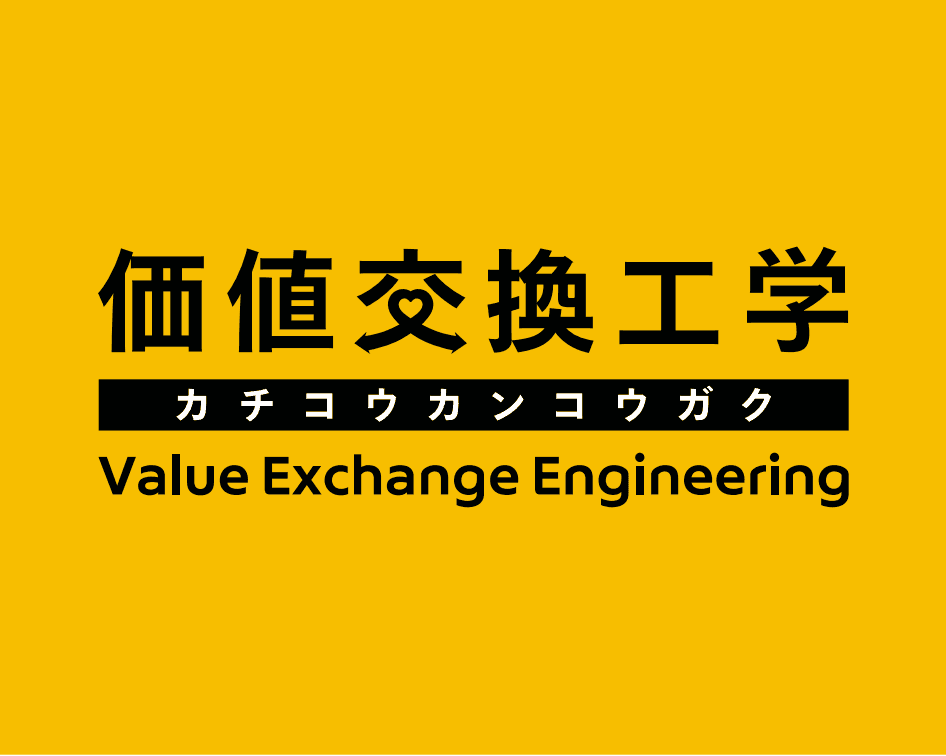New videos are now up on the Mercari R4D YouTube channel introducing the research being done in Value Exchange Engineering. We interviewed the researchers and had them tell us about their respective projects.
What Is Value Exchange Engineering?
Value Exchange Engineering is a fully collaborative project between Mercari’s research and development team, Mercari R4D, and the Research Institute for Inclusive Society through Engineering (RIISE) at The University of Tokyo, launched in 2020.
Unconstrained by the bounds of existing academic frameworks, we conduct research on wide-ranging technologies surrounding value exchange, with the aim of achieving a society in which people around the world can experience a fair and smooth exchange of value.
The Value Exchange Engineering Project: https://www.riise.u-tokyo.ac.jp/
Interviewing the Researchers
Today we present to you nine new videos interviewing the researchers behind each project. If any of the research interests you, please give the video a like and our channel a follow!
Creating Well-Being by Circulating Items and Knowledge
ShareWel is a project researching and developing a platform to promote and effectively use idle assets within the university. The name is short for “sharing and reuse platform for well-being.” This project involves a diverse range of research, including Kansei (emotional and perceived) design, human computer interaction, economics, game theory, and lifecycle assessment. The project will soon enter the testing phase, with the aim to shape a platform that will boost the well-being of every one of its participants.
ShareWel website: https://sharewel.riise.u-tokyo.ac.jp/about/
Interviewees: Hideyoshi Yanagisawa (Associate Professor, Department of Mechanical Engineering, Graduate School of Engineering), Ari Hautasaari (Project Associate Professor, Interfaculty Initiative in Information Studies), Akira Matsushita (Doctorate Student, Economics Major, Graduate School of Economics)
Expressing Emotions Through the Shape of Text Bubbles
When sending text messages, it can be hard to deliver the emotions attached to a message with text as the only form of information available. Depending on the recipient, there may be a perception of anger, sadness, sarcasm, or any number of potentially unintended emotions. Here, we have the researchers speak to us about texting, emotions, and whether forms of expression such as stickers and text bubbles can lead to more efficient communication.
Interviewees: Ari Hautasaari (Project Associate Professor, Interfaculty Initiative in Information Studies), Rintaro Chujo (Master’s Student, Graduate School of Interdisciplinary Information Studies)
Normalizing Sustainable Consumer Behavior by Exploring the Consumer Value of Secondhand Items
This research aims to understand consumer behavior and what motivates consumers to accept and decide to purchase secondhand items, as well as the reduction in environmental impact this choice makes. This interview explores the reasons behind taking on this research.
Interviewee: Dami Moon (Project Researcher, Department of Urban Engineering, Graduate School of Engineering)
Using AI Technology to Ensure the Diverse Opinions and Ideas in Society Are Heard
In this interview, we learn about AI technology that helps bring to the surface minority opinions that tend to be buried during groupwork and discussions. AI should assist people rather than simply tell people what to do. In the video, Yukino shares specific examples from her research and speaks to us about the ideal society this research aims to achieve.
Interviewee: Yukino Baba (Associate Professor, Graduate School of Arts and Sciences)
Developing Instant 3D Origami Sheets for Environmentally Friendly Creation
Koya talks to us about his research on digital fabrication and algorithms that can create any three-dimensional structure out of a single origami sheet. The development of a technology which can create any desired three-dimensional shape simply by heating a single foldable sheet reduces waste and makes environmentally friendly production possible.
Interviewee: Koya Narumi (Project Assistant Professor, Department of Electrical Engineering and Information Systems, Graduate School of Engineering)
Making Life Easier for People With Unilateral Hearing Loss: R&D for a Device in the Form of Eyewear
People with one-sided hearing loss face various challenges. They may not realize when spoken to from the side with impaired hearing, and have a hard time identifying the direction which sounds are coming from. Hearing aids that address such issues exist, but with an adoption rate of only 4%. It is said that by the age of 80, 9 out of 10 people experience hardness of hearing. Hearing loss is something everyone experiences as they age, making these latent challenges common to everyone in society.
In this interview, Ken talks to us about the new alternative of a hearing device in the form of eyewear.
Interviewee: Ken Takaki (Doctorate Student, Graduate School of Engineering)
What Layout Makes for a Pleasant Museum Visit? Understanding Urban Planning and Architectural Design Through Mathematical Optimization
This research aims to create environments that are mathematically optimized to be comfortable for visitors by analyzing how architecture and urban planning are affected by human decision-making and the flow of human traffic. In this interview, Yudai tells us about architectural design and planning that is human-centered and encourages communication.
Interviewee: Yudai Honma (Associate Professor, Department of Architecture, Graduate School of Engineering)
A Silent Speech Interface That Reads Lip Movements
In contrast to conventional speech-to-text interfaces, our silent speech interface provides a way for users to control various devices through interpreting human speech without the need for voice input. We anticipate this hands-free, voice-free solution will bring greater convenience to people’s lives and will become a next-generation interface adopted widely throughout society.
In this interview, Shiyu tells us about the silent speech interface as a more efficient form of communication.
Interviewee: Shiyu So (Master’s Student, Graduate School of Interdisciplinary Information Studies)
Poimo: A Soft, Inflatable Vehicle, Creating Mobility for Anyone, Anytime
Poimo is a personal transporter with a soft, inflatable airbag structure. Our research looks into intelligent navigation technologies that would allow for autonomous driving on uneven terrain such as bumpy roads, and in tight spaces such as offices, as well as operational interface technologies to operate the vehicle. We believe the widespread adoption of vehicles like Poimo can help eliminate unfortunate accidents and injuries from society.
Interviewee: Ryosuke Yamamura (R4D Researcher), Mitsuhiro Kamezaki (Project Professor, Department of Electrical Engineering and Information Systems, Graduate School of Engineering)
